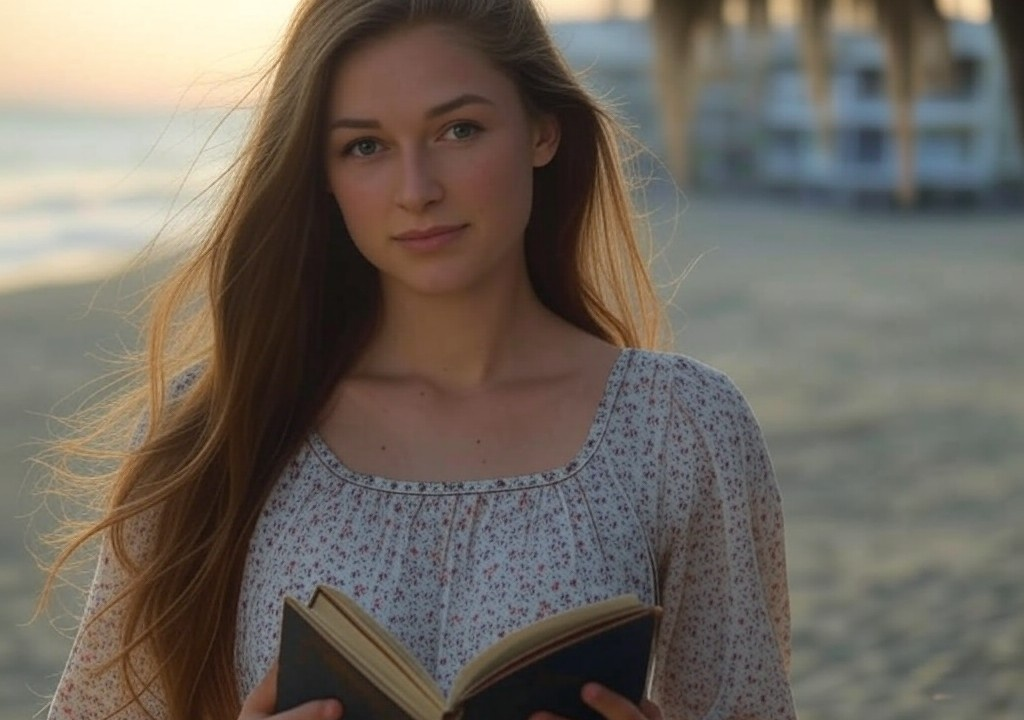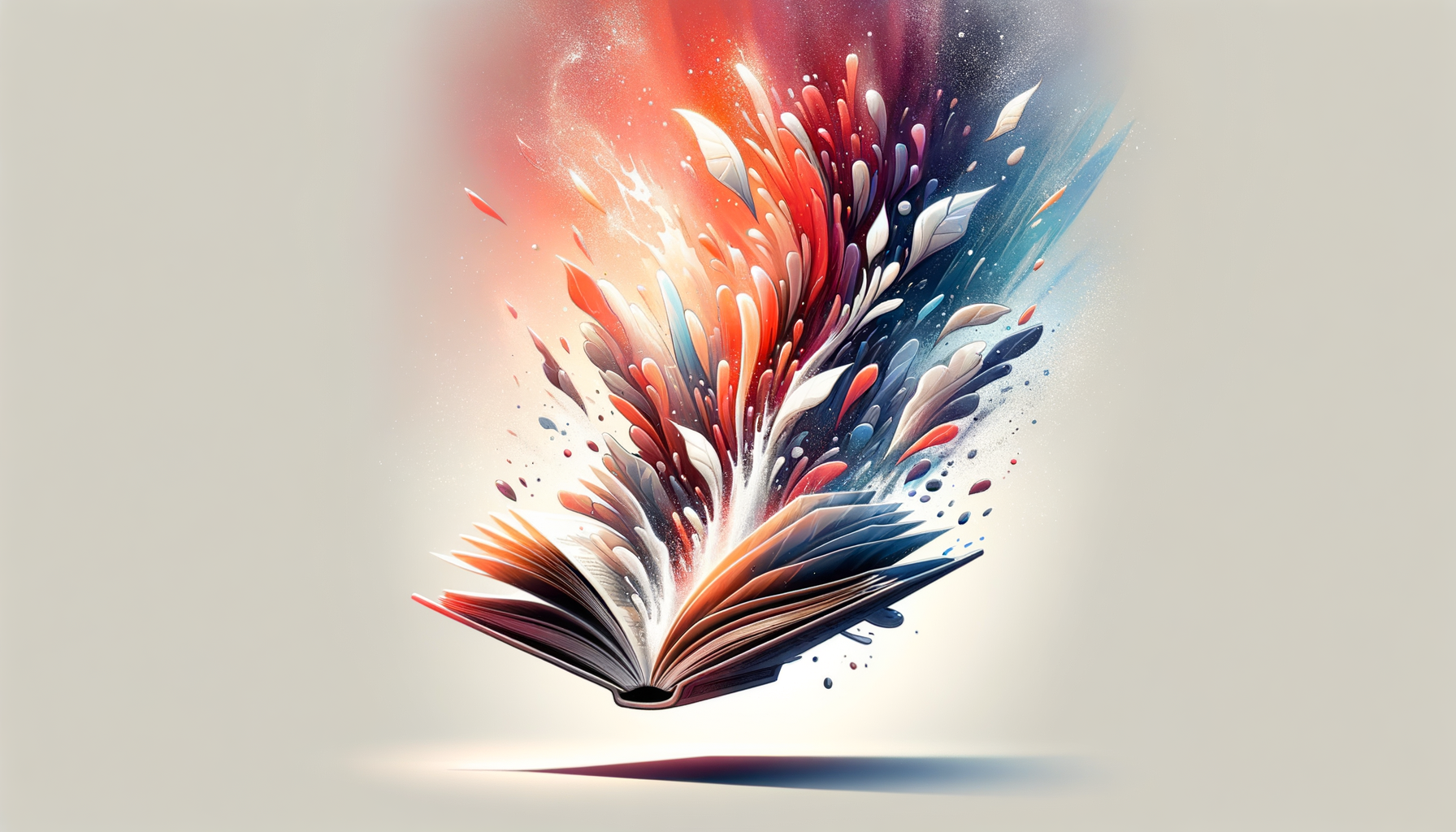Why do I write? It's a question I’ve been asked many times—usually by someone giving me side-eye over the brim of their coffee cup after I've admitted that no, writing a novel does not mean I’m “rolling in royalties.” Still, no matter how much late-night editing or creative self-doubt lies ahead (and trust me, there’s plenty), the answer always comes back to this: I write because I don’t know how not to.
Let me back up a bit and explain. Writing, for me, has always been a lot like falling in love—and like love, it’s never been particularly simple. It can be exhilarating, frustrating, intimate, vulnerable, and sometimes absolutely bonkers. So when people ask me what keeps me tethered to storytelling, I feel like they're asking why anyone bothers chasing connection. The answer? I’m addicted to the magic of it all. Let me show you what I mean.
The First Crush: Discovering Storytelling
I grew up along the Grand Strand, where life revolved around sunburned tourists, too many seagulls, and my parents' tiny beach café. It was a setting that practically begged for stories. Every summer, families with sand-coated flip-flops shuffled into the café, each bringing their quirks, arguments, and accents. I loved watching couples bicker over whether extra whipped cream outweighed summer diets. Or overhearing teens pine for lifeguards who wouldn’t remember their names. I couldn’t help but weave these fleeting snapshots into my own made-up dramas.
I blame my love of writing on this—on eavesdropping between ice cream spills and my parents’ rule that I couldn’t leave the house without a notebook. Writing my first story felt like spotting someone cute from across the boardwalk: all fluttering excitement and untapped possibility. And just like that first innocent flirtation, once I started, I couldn’t stop.
The Honeymoon Phase: Falling in Love With the Process
Somewhere along the way, writing became more than an escape. It became an obsession. In school, especially during long, sticky Lowcountry afternoons, I scribbled poems in the margins of my math notes like love letters buried in code. Words had this rhythm to them, like the distant hum of waves—a constant pull that felt easy and sure, even if everything else in life wasn’t.
College deepened the romance. At the College of Charleston, I’d spend hours at a coastal café, dreaming up characters and agonizing over metaphors as if crafting the perfect sentence had the same gravity as confessing your first “I love you.” Sure, it wasn’t always shiny and beautiful—any writer knows that most drafts start off looking like an emotional train wreck. But that’s the thing about the honeymoon stage—you're still in awe of the potential.
Kind of like those first few weeks of a new relationship, where even their weird collection of ceramic frogs seems endearing. Writing was that person for me, always full of surprise and possibility.
The Hard Conversations: When Words Don’t Come Easy
Of course, love stories aren’t all sunsets and folded love notes. There are those moments when writing feels impossible—like trying to order everything on a restaurant menu while knowing you can only afford one dish. You want to capture it all—the mood, the depth, the truth—but it doesn’t always come out the way you planned.
For me, these moments hit hardest when I’m too deep in my own head. I liken it to when a long-term relationship goes into autopilot mode. You’ve grown comfortable together, sure, but you’ve also forgotten what made you fall in love in the first place. Writer’s block is a lot like that. It shows up uninvited, steals the joy, and sits in your creative space eating sadness Doritos.
During these dry spells, I have to remind myself why I fell for storytelling in the first place. Sometimes, that means stepping away from the page entirely. Other times, I’ll lean into humor as a reset. I’ll write the most ridiculous inner monologue for my characters just to spark something fresh—kind of like planning a random day trip in a relationship to break a rut. Sometimes, you just have to shake things up.
The Power of Vulnerability: Where the Magic Happens
Here’s the uncomfortable truth no one likes to talk about: writing asks you to get naked—not literally, unless you’re really leaning into metaphors, but emotionally. It demands vulnerability, honesty, and the kind of heart-thumping courage it takes to open up to someone you adore.
The first time I shared one of my short stories out loud in a college workshop, I was convinced my professor would banish me from the room. Instead, they smiled like I’d stumbled on something worthwhile. That moment—that small validation—was the key to my realization that the terrifying, squishy parts of storytelling are the most important.
Kind of like those moments in a relationship when you share weird secrets, like how you wore socks in the pool until middle school, or you openly cry at the end of Homeward Bound every time. Once you push past the fear of judgment? That’s where real connection happens, where rich stories unfold. Writing is no different. It’s less about showing up perfect and more about showing up human.
Why I Keep Writing
When people ask why I write, or more importantly, why I keep writing, especially when it isn't glamorous, my answer is this: writing reminds me of the weight and beauty of every connection we make—whether with ourselves, others, or through scribbles on a page. Like falling for a person, falling for a story challenges me to grow, to get curious, and to let myself feel it all: the awkwardness, the heartbreak, and the little thrills that get you through the day.
In a way, writing is a lot like a long walk down Myrtle Beach at sunset. Sure, it’s cliché. You might step on a shell and honestly, your shoes will probably get soggy. But as you keep walking, the horizon opens, and you remember why you started. You feel the wind on your face and the rhythm of the tide, and it all feels worth it. That’s writing, in every phase—the clumsy starts, the dizzying highs, the hard stretches, and the magic you discover along the way.
So, to anyone who’s ever felt the urge to tell a story, even if you think no one’s listening: do it. Write the messy, heartfelt, ridiculous truth of your version of life. If writing has taught me anything, it’s that the best connections—like the best stories—happen when you lean in and dare to share a little piece of yourself.
And hey, if it doesn’t turn out perfect? That’s okay. Just blame the seagulls. Or the metaphorical Doritos. Whatever works.




















